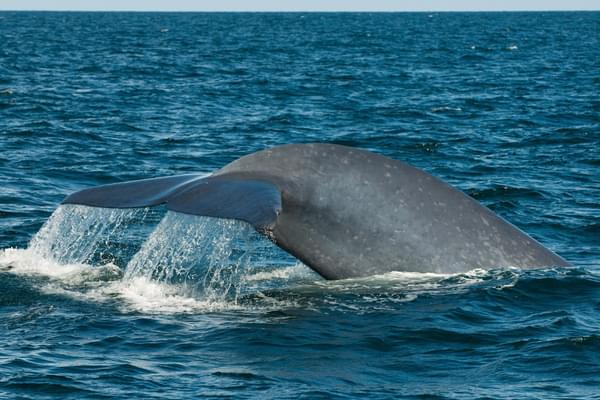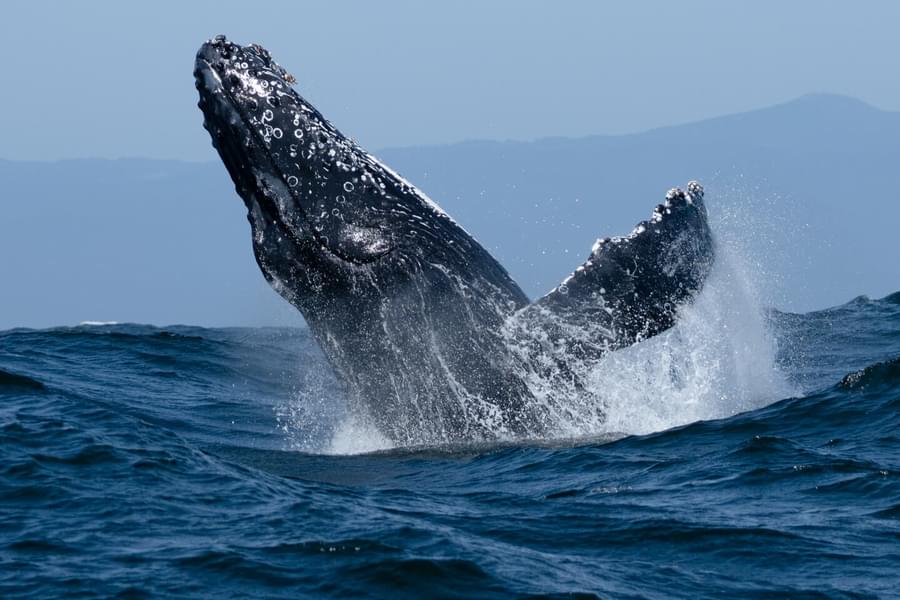Click-bait headlines aren’t very common in the conservation world, so this one caught more than a few of us by surprise.
Referring to the International Whaling Commission (IWC), written by a former IWC Chair (Peter Bridgewater) alongside three other esteemed international Professors, and published in the respected journal Nature, the headline didn’t beat around the bush “Dismantle ‘zombie’ wildlife protection conventions once their work is done.”
The basic argument, beyond the wryly provocative opening, is that it was great when it started, did a huge amount for cetacean conservation, but has since lost its way. That’s not a view exclusive to academics I hasten to add. Nor is it exclusive to the IWC - plenty of conservationists feel just the same way about the Convention on International Trade in Endangered Species (CITES) and their endless, time-consuming debates about supposedly sustainable utilisation of natural resources from advocates and opponents of the ivory and rhino horn trade.
Where the Nature paper comes up short is in making a convincing case for what might replace the IWC. Or in making a decent argument that its work really is done. The “Whaling” bit of the International Whaling Commission is something of a misnomer, and we suspect the paper’s authors also recognise that. The IWC doesn’t just “do” whaling - it recognises the multiple threats facing the world’s whales and has evolved to address them, with work programmes on ship-strikes, fishing gear entanglement, noise pollution, plastics and climate change.
While zombies may never die, they certainly don’t evolve.
Although Norway and Iceland still take whales for commercial purposes under an objection or reservation to the moratorium, and Japan hunts as a non-member of the IWC, the moratorium has continuing relevance and a global significance that would be lost if the IWC were terminated. While some species and populations of whales have recovered (or are slowly recovering) since the moratorium, many are still threatened with extinction. The moratorium, the ICRW’s other provisions and the IWC’s scientific expertise were decisive factors in Australia’s International Court of Justice case against Japan, which played its part in Japan’s ultimate withdrawal from whaling in the Southern Ocean.
Bridgewater et al.’s suggestion that the case had “no discernible impact on whale conservation” is belied by the many thousands of additional whales now swimming safely in the Antarctic. Furthermore, in deference to the IWC, CITES banned international commercial trade in the parts and products of the great whales. With the IWC and its moratorium gone, CITES could allow international trade to resume, stimulating markets for new commodities that would increase demand for commercial whaling.
The assertion that one international agreement can easily absorb the work of another indicates a fundamental misconception of how such agreements work since they cannot go beyond their agreed upon mandate and because not all countries are parties to all agreements. In addition, all the multilateral environmental agreements are increasingly thinly stretched financially, and none are in a position to take on major new areas of work.
The IWC’s Scientific Committee is an unrivalled specialist body of some 200 of the world’s preeminent cetacean scientists. It is uniquely qualified to monitor the conservation status of these species and provide advice on sustainable removals, the impact of anthropogenic threats, including emerging challenges such as deep-sea mining and plastic pollution, and improving human/cetacean coexistence.
As the only international organisation with the mandate, membership, and competence to regulate whaling of all kinds in “all waters” and the dedicated expertise to understand and mitigate threats to cetaceans and promote the value of their non-consumptive use, the IWC is and will remain essential to the future of cetacean conservation and management.
That the IWC achieves so much despite the efforts of whaling nations and their supporters to continually frustrate its work (including by not paying their membership fees) is remarkable. NGOs long committed to this work believe the IWC needs to be adequately funded, not dismantled, to meet the serious conservation challenges facing cetaceans today.
ORCA is proud to be one of them.
More information can be found in this international NGO rebuttal.
Main photo credit: Terry Carne

Despite commercial whaling decimating whale populations globally for over a hundred years, there are still countries which think it is acceptable to hunt and kill whales for profit. Our work plays a vital role in helping to put pressure on UK and other governments to drive an end to commercial whaling globally, so please support us at www.orca.org.uk/donate to help us continue this important work.

